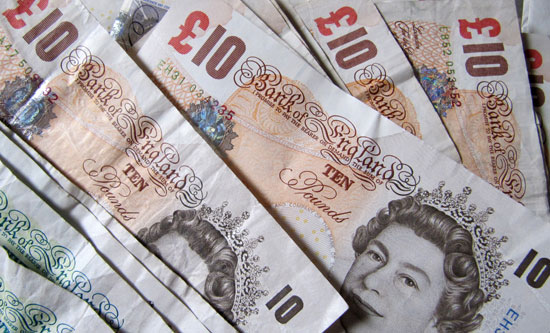
What a glittering array they are: Bono, the Queen, Formula One champion Lewis Hamilton, Jacob Rees-Mogg and his Old Etonian friend, the stars of BBC’s Mrs Brown’s Boys, the Barclay brothers (owners of The Daily Telegraph), Lord Ashcroft (former treasurer and deputy chair of the Conservative Party), Gary Lineker, a Shoreditch cocktail bar, the Universities of Oxford and Cambridge endowment funds and Prince Charles – we could go on and on. What do they have in common? They have plenty of surplus cash and are revealed by the Paradise Papers to have used tax havens to stash it away from the reach of Her Majesty’s Revenue and Customs. Tax avoidance (legal) and tax evasion (illegal) are not aberrations; they are the norm among rich individuals and powerful organisations. According to Gabriel Zucman of the University of California: ‘In the UK, Spain, Germany and France, about 30-40% of the wealth of the richest 0.01% of households is held abroad’ (The Guardian 8 November 2017).
13.4 million documents, many originating with the law firm Appleby, were leaked to the German newspaper Suddeutsche Zeitung, which shared the data with the Consortium of Investigative Journalists. Appleby describes itself as an ‘offshore legal services provider’, with offices in Bermuda, the British Virgin Islands, the Cayman Islands, Isle of Man, Jersey, Guernsey, Mauritius and Seychelles, as well as the financial centres of Hong Kong and Shanghai. It is one of a group of law firms known as the ‘offshore magic circle’.
The genius of British creativity has descended to financial jiggery-pokery and to elaborate vanishing acts. The Paradise Papers, like the Panama Papers, the leaked HSBC documents and Luxembourg files before them, reveal that the City of London is at the heart of the world’s biggest network of tax avoidance, money laundering and market rigging.
These are the means by which capitalists retain their profits. Multinational corporations, pension funds, insurance companies, banks and stock markets are all beneficiaries. Smuggled away in the Papers, alongside the glitterati are Apple, Nike, Siemens, McDonalds, Facebook, ExxonMobil, Glencore, Royal Dutch Shell and other giant firms.
US corporate cash piles are expected to reach $2 trillion by the end of 2017 (Financial Times 21 November 2017). This is money that cannot find an adequately profitable outlet for investment.
On 2 November 2017, the British Office for National Statistics stated that the UK had the lowest gross fixed capital formation of 34 Organisation for Co-operation and Development (OECD) countries. Gross fixed capital formation is spending on non-financial assets such as land, buildings, machinery, tools and software – physical assets. From the first quarter of 2008 to the second quarter of 2009, this form of investment fell by 18% in the UK; the largest proportionate fall of any OECD country. Between 1997 and June 2017 the UK spent, on average per year, just 16.7% of its gross domestic product on gross fixed capital formation; the lowest of all the OECD countries.
What were, in the past, normal ways of investing to make profits have been replaced: profit increasingly takes a parasitic form – interest, currency exchange deals, speculation and the manipulation of financial assets. Tax avoidance, evasion and fraud are extensions of these methods of securing a share of surplus value and are invaluable to the ruling class. These are features of the capitalist crisis.
Extreme and growing inequality
70% of all people in the world live in countries that have seen inequality increase in the past 30 years. This is the case for Britain and the US. The richest 1% of people in the world own more wealth than the rest of the people on the planet (see Oxfam ‘An economy for the 99%’ January 2017). Just eight men own as much wealth as the 3.6 billion people who constitute the poorest half of humanity. The profits of the world’s top ten biggest corporations are greater than the combined government revenues of 180 countries. It is this startling accumulation of wealth in the hands of the few that feeds the tax havens and seeks out the services of Appleby and the rest of the offshore magic circle.
According to the OECD, tax avoidance costs governments some $240bn a year. Corporate tax dodging costs the poorest countries $100bn every year. Gabriel Zucman reckons the money that multinationals shift out of Britain to tax havens amounts to £14.3bn in lost revenues per year. The big accountancy and legal firms advise the British government on the legislation it passes, and set up tax avoidance schemes for the multinationals. The European Union has warned 53 countries and territories, tied to Britain, they risk being boycotted as tax havens because the British government has not issued them warnings that their legal systems do not comply with EU standards and regulations. The City of London itself functions as a tax haven.
London has more billionaires than any other city in the world. Oxfam reports: ‘For an investment of at least £2m, you can buy the right to live, work and buy property in the UK and benefit from generous tax breaks.’ Revolving around these moneybags are parasitic armies of accountants and lawyers. Acting as investment consultants they are paid on a time and materials used basis. This means that the more complex the advice they give, the more tangled the contrivances they invent, the more they are paid. Simple solutions as to what the moneybags should do with their plunder would earn the consultants less. This is parasitism in practice. Such is the complexity and opaqueness of the deals conjured up, that fighting tax avoidance and evasion is impossible without striking at the source of the booty – ownership.
Trevor Rayne
Fight Racism! Fight Imperialism! 261 December 2017/January 2018




